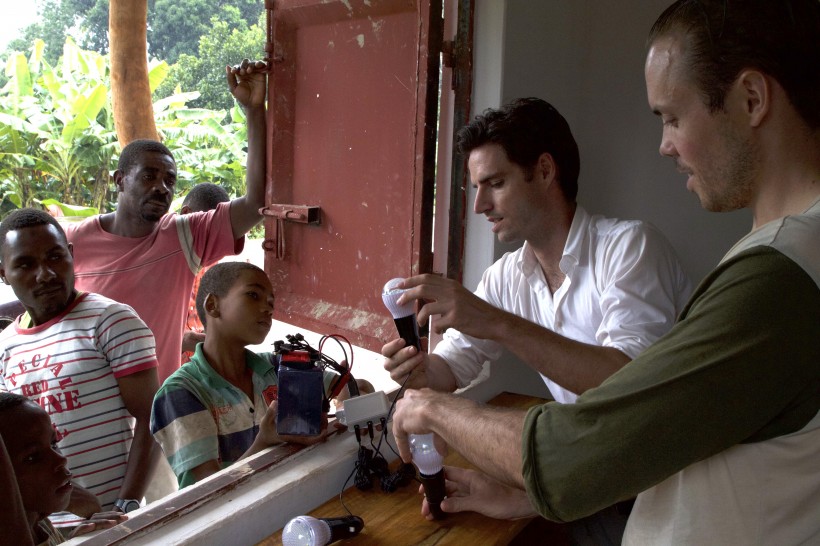Jaza Energy has closed a $1.7 million round of seed funding that will help it to install more green energy stations in Tanzania in Sub-Saharan Africa.
Based in Halifax and Tanzania, Jaza Energy sets up central charging stations in African villages that have never had electricity. People in these villages can charge batteries at the stations then take them home so they have electric light at home for the first time. It aims to provide people with enough sustainable power for lights and phones, so their businesses can operate more efficiently and their children can study after dark.
“Jaza’s mission is to provide an affordable, high-value service for homes in rural Tanzania, powering light and small appliances for a fraction of what a typical off-grid household spends on kerosene for lighting,” said CEO and Co-Founder Jeff Schnurr in a statement.
The investors in the current round include:
- Draper Richards Kaplan Foundation, a global venture philanthropy firm. Nathalie Kylander, a managing director at Draper Richards Kaplan, has joined the Jaza board.
- Active Impact Investments, a certified BCorp based in Vancouver that manages a limited partnership fund with $10M in assets under management. Active Impact CEO Mike Winterfield has been named a board observer.
- Shell Foundation, is a U.K.-registered charity, founded by Shell in 2000.
- Ceniarth, a single-family office focused on funding market-based solutions that benefit underserved communities.
- And, the EEP Africa trust fund, a clean energy financing facility hosted and managed by the Nordic Development Fund (NDF) with funding from Austria, Finland and NDF.
Jaza’s last fund-raising exercise was a $750,000 round in 2018 led by the New Brunswick Innovation Foundation and several angels.
Operating in Tanzania since 2017, Jaza has built 70 Energy Hubs, serving over 23,000 people in rural Tanzania. The company, which was co-founded by Schnurr and Sebastian Manchester, employs 140 women in the Tanzanian regions of Pemba and Mtwara.
The Energy Hubs are manufactured in Dar es Salaam, the largest city in Tanzania, and are installed in rural Tanzania communities. These small shops are designed with solar panels on the roofs and are capable of charging more than 200 battery packs a week. Women from local communities manage day-to-day operations such as sales, battery charging and customer support.
Jaza’s in-community approach provides customers living with poverty, whose household earnings are between 75 cents and $1.75 per day. On average, customers switching from kerosene lighting to Jaza, save $42 a year – which represents about 20 percent of their annual household budget.
“Every hub we build can reach breakeven quickly and then begin to pay back,” said Schnurr in a recent interview with Entrevestor. “We’ve been growing by 30 percent monthly compounded over the last six months in terms of revenue.”
Jaza’s customers pay an upfront fee for the ability to access Jaza’s service, and an ongoing fee for each fully charged battery they receive from an Energy Hub. Energy Hub locations also provide access to lights, mobile phone charging cables, TVs and stereos.
In the interview, Schnurr said he has seen the power stations transform lives of people in Tanzania, especially women. He noted recently visiting one woman who operated a sewing machine as a business, and having electricity allowed her to extend her working hours into the evening, increasing her income significantly.
“We see those stories all the time and we’ve seen a real increase in household income,” he said. “We’re a company that’s working to connect our customers to the rest of the globalized world.”










